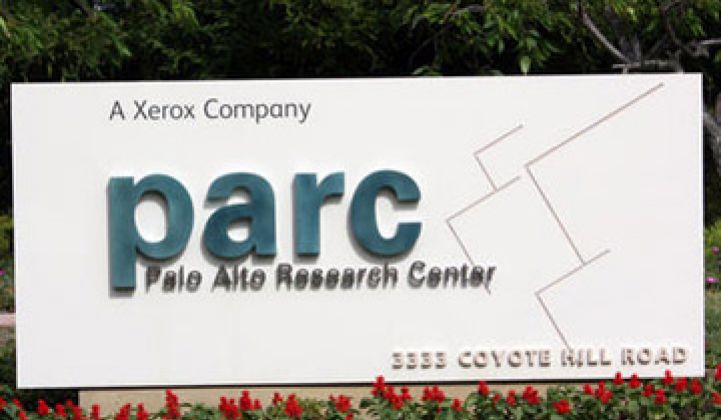The solar market continues its meteoric growth. No other renewable energy market has grown this fast for this long.
A number of solar vendors have entered the "one gigawatt capacity club" and the sheer heat in the market has convinced a bunch of Fortune 500 firms to enter the field. Along with this growth, however, has come falling ASPs, excess capaciy and intensified competition. Solar panels produce electrons and electrons are arguably a commodity product. That makes solar panels look like commodities, as well.
Is there still for room for next-generation technology and new companies in the solar field? Are there still opportunities for solar startups and their VC investors?
The Fountainblue organization put on an event at Palo Alto's PARC with solar investors and entrepreneurs and tried to answer those questions.
The panelists:
- Scott Elrod, VP, Director of Hardware Systems Laboratory, PARC: Elrod believes that the current crop of U.S. concentrated solar power (CSP) projects are going to run into "regulatory roadblocks" and has concerns over their water usage.
- Matthew Garratt, Senior Associate, Battery Ventures: Garratt professed being a bit of a skeptic on CSP. He said that the solar market hasn't proved itself as a viable venture-backed investment class.
- Phil Metz, Business Development, SolFocus: Entry points for smaller solar firms are less porous because of the increasing verticalization of the industry. Second-tier Chinese module manufacurers have made a tremendous difference in the dynamic of the solar industry. SolFocus' competition has gone from thin-film solar to single-axis tracked silicon.
- Abe Yokell, Principal, RockPort Ventures: Yokell called the project development process "long and tortuous." A wind project needs "six to ten bird studies" alone. He said he was more a believer in commercial rooftops. Yokell said that the cost of acquisition in residential solar is unbelievably high and that "there's room for innovation there -- in installation, in balance of system and in racking." He also said that Rockport has seen five or six interesting plans in the last few years in solar financing and sales and marketing -- essentially lowering the cost of customer acquisition. Solar has basically three inputs: energy, labor and capital, and all are subsidized by the Chinese government. This crushes margins and makes life tougher for a startup. It's difficult to underestimate the impact of China in solar.
Presenting entrepreneurs of the (arguably) next-generation solar firms:
- Steve Bisset, CEO, Solar Storage Company: Solar Storage is a startup funded by NEA that remains in stealth mode, so the CEO was somewhat vague and obfuscatory. The firm is doing enterprise and commercial-level solar/storage hybrid systems. Bissett told me they'll reveal their details early next year. Bissett said that he's looking to provide systems for factories and agricultural firms with "three-shift" requirements. The firm is using "1930s-based steam-engine technology," along with a concentrator and "liquid propane gas pressure vessels." He claims the firm is very R&D efficient, very manufacturing efficient, financing efficient and marketing efficient. Capacity ranges from 100 kilowatts to a few megawatts. The firm will be looking to raise a $10 million to $20 million round A in 2011. We've reported extensively on energy storage here at Greentech Media.
- Thomas Dinkel, CEO, Sun Reports: Dinkel's firm spent a year and about $250,000 to design the company's residential and commercial solar PV or thermal monitoring equipment. Their web-based monitoring system alerts the customer or installer about system performance issues before they impact payback.
- Helmuth Treichel, CEO, SunSonix: Treichel's company launched in 2008 with a bio-degradeable wafer cleaning solution that removes trace levels of metals on a silicon substrate. The firm has determined that their process yields an improvement of 0.3% in absolute solar conversion efficiency with a drop-in solution that adds no additional processing steps. The startup is seeking $300,000 to $500,000 in funding.



